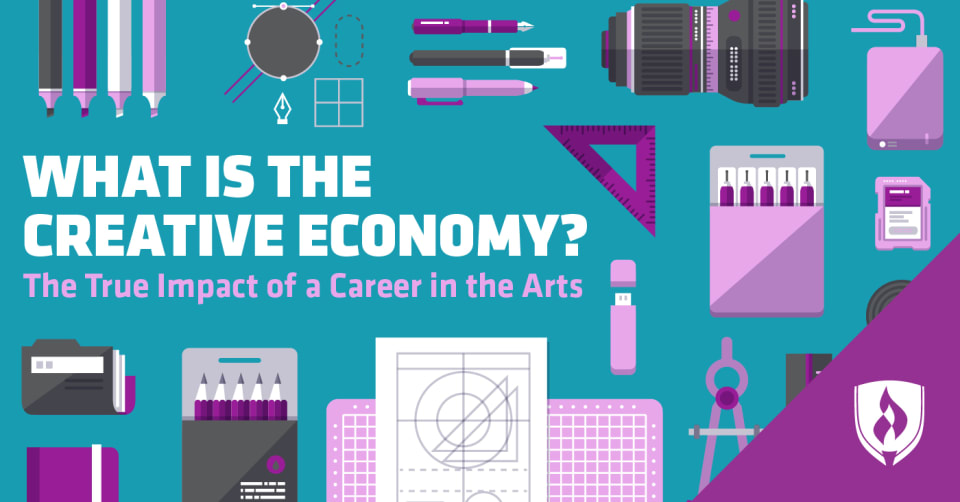Insights for Success in Tech and Creative Industries

The tech and creative industries are dynamic, innovative fields that offer exciting career opportunities.
The tech and creative industries are dynamic, innovative fields that offer exciting career opportunities. However, success in these areas requires a unique blend of skills, adaptability, and a proactive mindset. Here are some valuable insights to help you thrive in the tech and creative industries.
1. Embrace Lifelong Learning
Tech Industry: The tech industry evolves rapidly, with new programming languages, tools, and technologies emerging regularly. To stay relevant, commit to continuous learning. Take online courses, attend workshops, and follow industry blogs and podcasts. Platforms like Coursera, Udemy, and LinkedIn Learning offer a wealth of resources to keep your skills sharp.
Creative Industry: Creativity knows no bounds, and the creative industry is constantly changing. Stay inspired by exploring different art forms, attending exhibitions, and participating in creative communities. Online platforms like Skillshare and MasterClass can help you learn new techniques and expand your creative repertoire.
2. Build a Strong Portfolio
Tech Industry: Your portfolio is a testament to your skills and experience. Contribute to open-source projects, develop personal projects, and showcase your work on platforms like GitHub and LinkedIn. Include detailed descriptions of your projects, highlighting the technologies used and the problems solved.
Creative Industry: A compelling portfolio is essential for creatives. Curate a diverse collection of your best work, whether it’s graphic design, photography, writing, or video production. Use platforms like Behance, Dribbble, or your personal website to display your portfolio. Make sure to update it regularly with your latest projects.
3. Network Actively
Tech Industry: Networking is crucial for career growth. Attend tech meetups, conferences, and hackathons to connect with industry professionals. Engage in online communities like Stack Overflow, Reddit, and Twitter to share knowledge and build relationships. Networking can open doors to new opportunities and collaborations.
Creative Industry: Building a network in the creative industry can lead to collaborations, referrals, and job opportunities. Attend industry events, join creative groups on social media, and participate in online forums. Platforms like LinkedIn, Instagram, and Twitter are great for connecting with other creatives and potential clients.
4. Cultivate Soft Skills
Tech Industry: Technical skills are important, but soft skills are equally valuable. Effective communication, teamwork, and problem-solving abilities are essential in the tech industry. Practice explaining complex technical concepts in simple terms, and work on your ability to collaborate with cross-functional teams.
Creative Industry: In the creative industry, interpersonal skills can set you apart. Strong communication, emotional intelligence, and adaptability are crucial. Being able to convey your ideas clearly and collaborate with clients, colleagues, and stakeholders is key to success.
5. Stay Updated on Industry Trends
Tech Industry: The tech industry is fast-paced, and staying updated on the latest trends is vital. Follow tech news, subscribe to industry newsletters, and join professional organizations. Understanding emerging technologies and market trends can help you anticipate changes and stay ahead of the curve.
Creative Industry: Trends in the creative industry are constantly shifting. Stay informed about current design trends, popular media, and cultural movements. Following industry publications, blogs, and social media influencers can keep you inspired and informed.
6. Develop a Personal Brand
Tech Industry: Establishing a personal brand can enhance your professional reputation. Share your knowledge through blogging, speaking at events, or creating video tutorials. Building a strong online presence can help you become a recognized authority in your field.
Creative Industry: Your personal brand is your unique voice and style. Develop a consistent visual identity and tone across your portfolio, social media, and website. Share your creative process, behind-the-scenes content, and personal stories to connect with your audience on a deeper level.
7. Seek Feedback and Iterate
Tech Industry: Feedback is a valuable tool for growth. Seek constructive criticism from peers, mentors, and supervisors. Use this feedback to improve your skills and refine your work. Iterating on your projects based on feedback can lead to better outcomes and continuous improvement.
Creative Industry: Constructive feedback is essential for honing your craft. Don’t be afraid to share your work with others and ask for their input. Critiques from fellow creatives can provide new perspectives and help you evolve your style and technique.
8. Balance Creativity and Practicality
Tech Industry: While innovation is important, it’s also crucial to balance creativity with practicality. Understand the constraints and requirements of your projects and strive to find innovative solutions within those boundaries.
Creative Industry: Creativity thrives within certain constraints. Balancing your artistic vision with client expectations and project requirements can lead to successful and impactful work. Learn to adapt your creativity to meet practical needs.
Conclusion
Success in the tech and creative industries requires a combination of technical skills, creativity, and a proactive approach to learning and networking. By embracing lifelong learning, building a strong portfolio, networking actively, and developing both hard and soft skills, you can navigate these dynamic fields effectively. Stay updated on industry trends, cultivate a personal brand, seek feedback, and balance creativity with practicality to achieve long-term success. Remember, the journey is as important as the destination, so enjoy the process and keep pushing the boundaries of what you can achieve.
- Share This Job



Write A Comment
No Comments